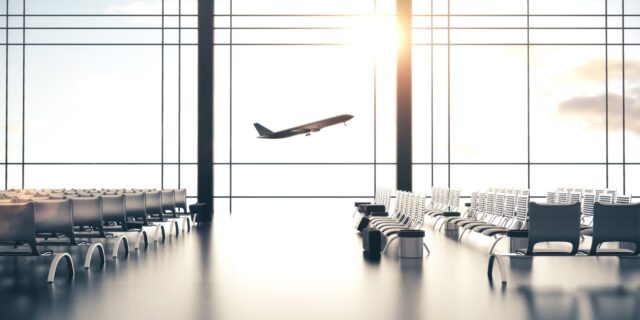As a professional airline pilot who has worked for various aviation companies, William Ryan Mitchell keeps a keen eye on the state of the aviation industry. Like so many others, he watched in horror as the pandemic called for worldwide lockdowns that grounded pilots across the globe. William Ryan Mitchell believes it is difficult to comprehend just how great of an impact the COVID-19 pandemic had on every professional who relies on the airline industry to provide for their families.
William Ryan Mitchell points to the industry revenues from 2019 to 2020 as the clearest indicator of how drastic the impact was. There was close to a 40 percent dip in overall revenue in 2020 compared to the year before. The financial ramifications of the pandemic will forever change the travel experience in America and around the world. When COVID-19 forced airlines to cut costs by reducing staff numbers, consolidating fleets, and even retiring pilots early, it left a serious issue now that it’s time to ramp back up. William Ryan Mitchell is not surprised by the increase in delays and flight cancellations as airlines try to return to the number of flights they offered before the pandemic.
One of the biggest struggles facing the aviation industry is competition for pilots. Now, that we have reached the timeframe where the Baby Boomer generation is forced to retire, (all pilots must retire by the age of 65 by law) there’s a need for a new wave of pilots to fill these positions. William Ryan Mitchell says another problem is that the military has made it more appealing to remain in the military, so fewer pilots are leaving the Air Force to acquire jobs as pilots. Also, the competition is international. If pilots can receive better deals overseas, they are often willing to take advantage of these career opportunities.
When it comes to unforeseen factors of the pandemic on the aviation industry, William Ryan Mitchell points to the habits of the average corporate traveler. The best customers for any airlines are typically those who fly frequently for business. Business travelers not only travel frequently, but they also travel in a rush. In other words, those traveling for business are willing to spend more for direct flights. Those flying for recreation will often take advantage of savings on flights with layovers, which isn’t as beneficial to the airlines. What the pandemic taught companies that were spending thousands upon thousands of dollars to send their employees across the globe is that they can still hold those meetings over Zoom and other similar platforms. Sure, there’s an element missing when salespeople can’t talk to someone in person, but more businesses are willing to give up that factor due to the cost savings of hosting meetings virtually.
There’s no denying that the COVID-19 pandemic changed the aviation industry for travelers and airlines alike forever more. Airlines that adjust to the needs of the modern traveler the quickest will have the easiest time recouping their losses.









